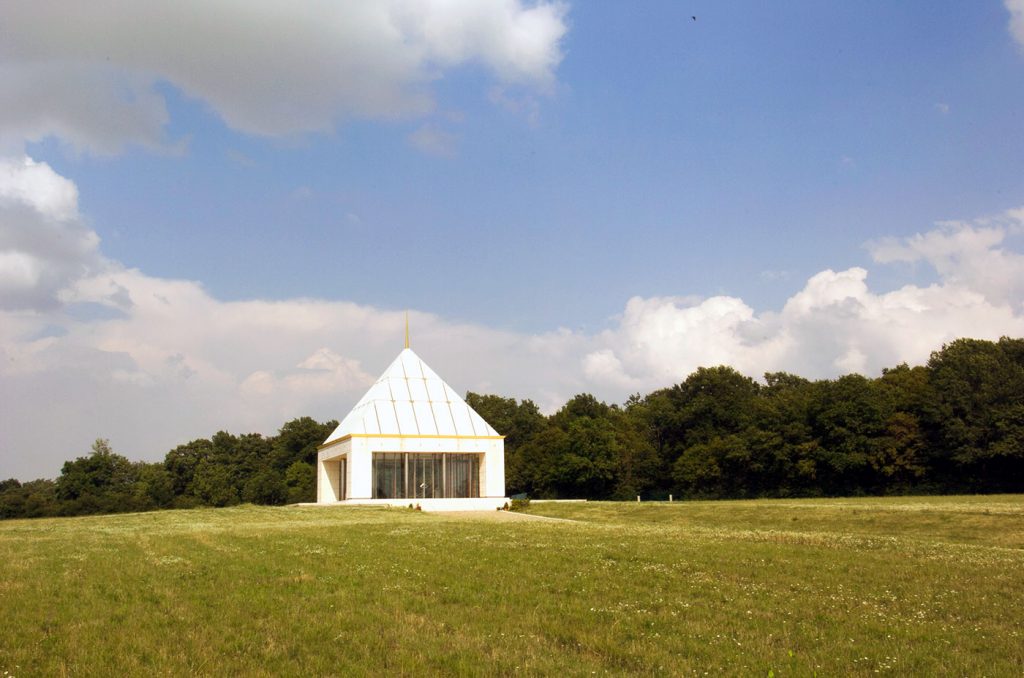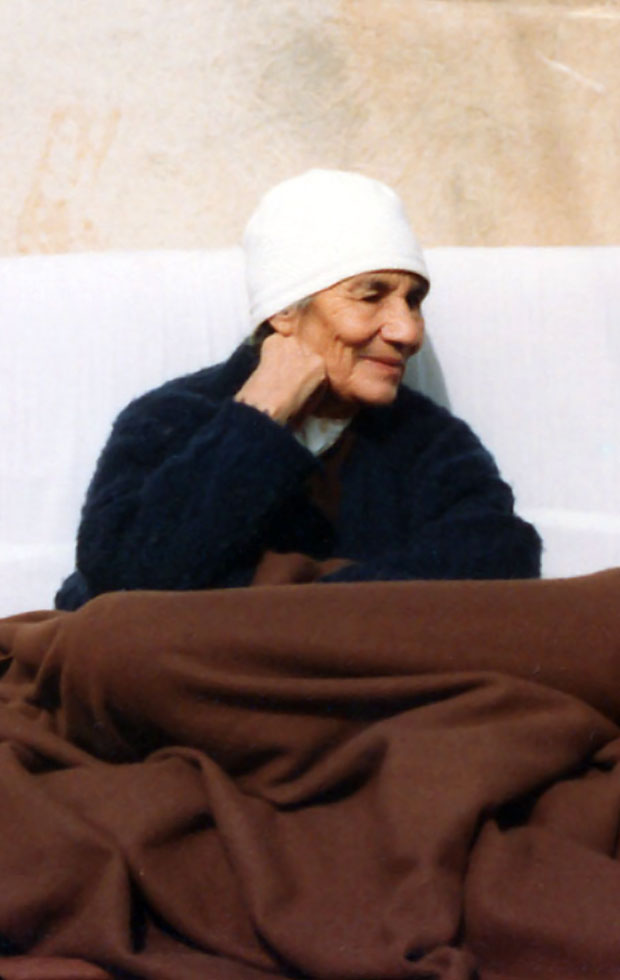Malak Jan, affectionately nicknamed “Jani” by her older brother and guide, was born in the Kurdish-inhabited village of Jeyhunabad, where she spent the majority of her life.
Though she lived in a remote location, she was a lively and modern woman, well aware of the problems and challenges of her time. She dedicated the whole of her life to the path of spiritual perfection and to defending the rights of women and children in a rather unpropitious, if not hostile, environment for such action.
Born into a family of notables from an ancient mystical lineage dating back to the 14th century, Malak Jan’s ancestors had settled approximately two hundred years ago in the village of Jeyhunabad, not far from Mount Bisotun, where the great Achaemenian King Darius the Ist had his exploits engraved over 2500 years ago. At the turn of the century, Jeyhunabad, a typical village of clay houses, had about one hundred inhabitants whose main source of subsistence was agriculture.

For a period of time, Jani’s father, Hadj Nematollah (1871-1920), well-known for his honor and integrity, served as counselor to the regional governor of Kermanshah. However, following a transformational experience in which he was called to the service of God, he fully devoted himself (as did his spouse) to the mystical path, living a life marked by asceticism, contemplation, writing, guidance, and sacred music.
Hadj Nematollah authored numerous works, including “The Book of the Kings of Truth,” a hagiographic history in verse published under the direction of the French scholar and philosopher Henry Corbin. His charismatic personality rendered him an influential and respected figure well beyond the geographical boundaries of his local region.
It was within such an environment that Malak Jan, the fifth of seven children, was born on December 11, 1906. Prior to her birth, her father had privately relayed that a soul of uncommon strength and purity would be entering their family. His eldest son, Ostad Elahi (1895-1974), born eleven years earlier, already demonstrated a remarkable spiritual aptitude. Contrary to the local custom that granted girls little or no consideration, Hadj Nematollah tended to Malak Jan’s education with the utmost care.

When she was only thirteen, Malak Jan was confronted with the unexpected passing of her father. In keeping with her father’s wishes, she decided not to marry and continued to dress in the white habit that she had assumed since childhood as a symbol of her devotion to God.
Beginning around the age of fourteen, she began to feel a pain in her eyes that would intensify over time; by the age of twenty, she had completely lost her vision. Nevertheless, she would later say:
God took away my sight, but opened before me the door to the Kingdom of Heaven; no one can imagine what I have gained from this.
Indeed, this opening of the spiritual universes was a prelude to the insight that she would ultimately attain and led her to discover her spiritual path:
Had I not become blind I probably would not have been attracted to spirituality. It was my blindness that detached me from the world and showed me unseen horizons. . . . If I had not chosen a truly experienced guide . . . there was nothing in our ancestral doctrines to attract me. . . . Once I chose Ostad, I trusted his words . . . personally, I accept only what he says. . . .
Malak Jan shared a special bond with Ostad, adopting her brother’s innovative and rational approach to spirituality, one that was based on the attainment of self-knowledge. As such, she sought to be by his side as much as possible, even when he traveled to distant posts on judicial assignments across the country:
The spiritual universes are so vast that I was disoriented after my father departed. Relentlessly, I sought a spiritual direction that would take me to the Source. Only when I was about thirty did I find this axis in my brother, Ostad Elahi. Everything I have understood and conveyed since then are his principles and teachings. Everything I know comes from him. I am very happy that he accepted me as his student.
With permission from Ostad, who would later bestow the honorific “Sheykh Jani” upon her, she guided her fellow villagers throughout her life. Her words were imbued with a divine effect, and in a spirit of compassion and generosity, she would grant the requests of all those who came to visit her, whether they were seeking the cure of a loved one, the resolution of some difficulty, the ability to conceive children, or simply spiritual guidance.
After Ostad departed this world, Malak Jan assumed the responsibility of continuing his teachings. By maintaining a constant inner relationship with him, she was able to develop the principles he had set forth. “Even after having left us,” she would say, “he continued to teach me and never abandoned me.”
For health-related reasons and at the request of family members, Malak Jan left her native village in 1993 and traveled to France for medical treatment. Her life set on July 15, 1993, at the age of 86. She was buried in France in a small town named Baillou, where a memorial has been erected in her memory. Her purity, virtue, and lifelong service to others elevated her to the rank of a saint in the eyes of those who knew her, and her memory continues to be honored today.

Malak Jan left behind approximately forty manuscripts in Kurdish and Persian in which she relates her spiritual experiences and her intimate conversations with the Divine. Among these works are her counsel and recommendations to women, as well as a few compilations of poems that bear witness to her penchant for mystical poetry.
Malak Jan used to say: “Life isn’t short, but time is limited” to accomplish all that we must during our time on earth. This acute awareness, not of the relentless passage of time but of the value of every moment as an opportunity for progress, rendered her as much a woman of action as of contemplation, a refuge and guide to all those who sought her compassion and insight.


